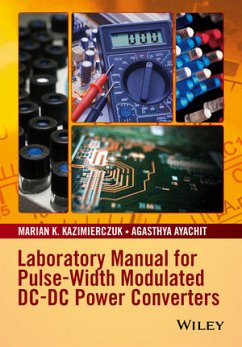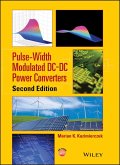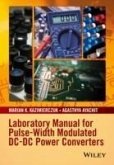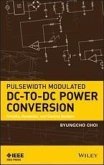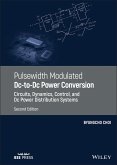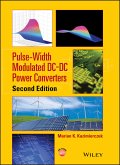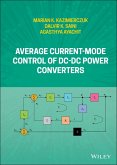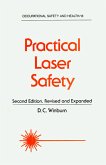Designed to complement a range of power electronics study resources, this unique lab manual helps students to gain a deep understanding of the operation, modeling, analysis, design, and performance of pulse-width modulated (PWM) DC-DC power converters. Exercises focus on three essential areas of power electronics: open-loop power stages; small-signal modeling, design of feedback loops and PWM DC-DC converter control schemes; and semiconductor devices such as silicon, silicon carbide and gallium nitride. Meeting the standards required by industrial employers, the lab manual combines programming language with a simulation tool designed for proficiency in the theoretical and practical concepts. Students and instructors can choose from an extensive list of topics involving simulations on MATLAB, SABER, or SPICE-based platforms, enabling readers to gain the most out of the prelab, inlab, and postlab activities. The laboratory exercises have been taught and continuously improved for over 25 years by Marian K. Kazimierczuk thanks to constructive student feedback and valuable suggestions on possible workroom improvements. This up-to-date and informative teaching material is now available for the benefit of a wide audience. Key features: * Includes complete designs to give students a quick overview of the converters, their characteristics, and fundamental analysis of operation. * Compatible with any programming tool (MATLAB, Mathematica, or Maple) and any circuit simulation tool (PSpice, LTSpice, Synopsys SABER, PLECS, etc.). * Quick design section enables students and instructors to verify their design methodology for instant simulations. * Presents lab exercises based on the most recent advancements in power electronics, including multiple-output power converters, modeling, current- and voltage-mode control schemes, and power semiconductor devices. * Provides comprehensive appendices to aid basic understanding of the fundamental circuits, programming and simulation tools. * Contains a quick component selection list of power MOSFETs and diodes together with their ratings, important specifications and Spice models.
Dieser Download kann aus rechtlichen Gründen nur mit Rechnungsadresse in A, B, BG, CY, CZ, D, DK, EW, E, FIN, F, GR, HR, H, IRL, I, LT, L, LR, M, NL, PL, P, R, S, SLO, SK ausgeliefert werden.

